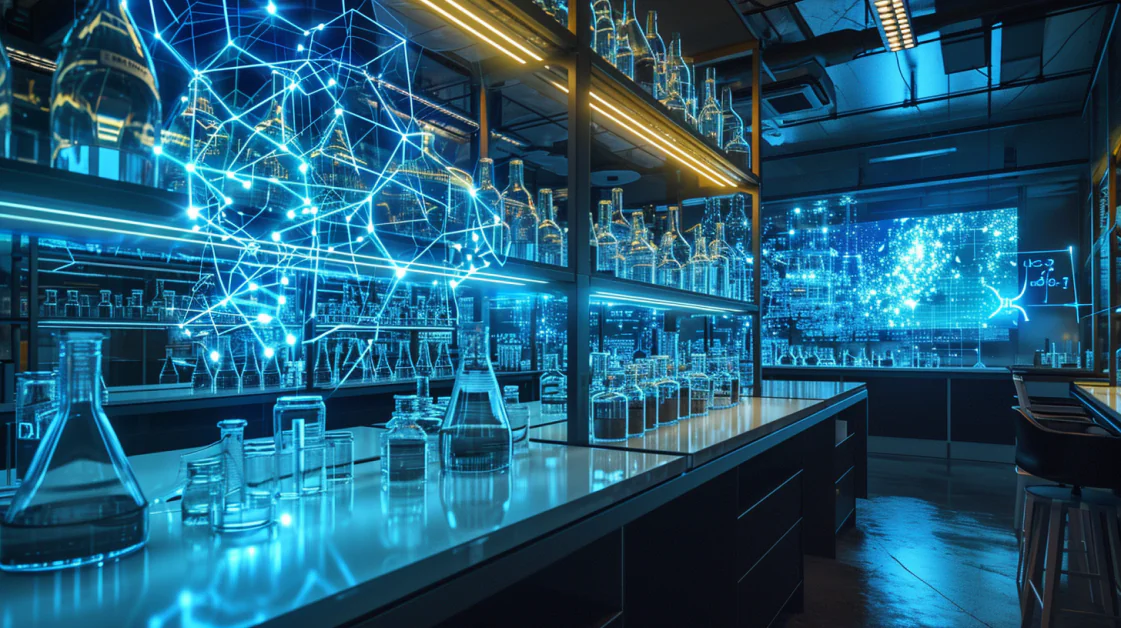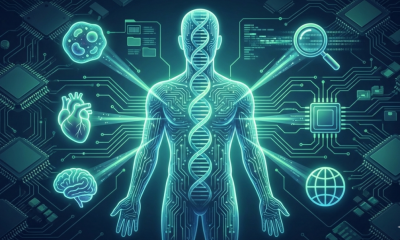Healthcare
AI-Driven Platform Could Streamline Drug Development

Researchers at the University of Cambridge have developed an AI-driven platform that dramatically accelerates the prediction of chemical reactions, a crucial step in drug discovery. Moving away from traditional trial-and-error methods, this innovative approach combines automated experiments with machine learning.
This advancement, validated on over 39,000 pharmaceutically relevant reactions, could significantly streamline the process of creating new drugs. Dr. Emma King-Smith from Cambridge’s Cavendish Laboratory highlights the potential impact: “The reactome could change the way we think about organic chemistry.” This breakthrough, a collaborative effort with Pfizer and featured in Nature Chemistry, marks a turning point in harnessing AI for pharmaceutical innovation and a deeper understanding of chemical reactivity.
Understanding the Chemical ‘Reactome’
The term ‘reactome’ signifies a groundbreaking approach in chemistry, mirroring the data-centric methods seen in genomics. This novel concept, developed by the University of Cambridge researchers, involves using a vast array of automated experiments, coupled with machine learning algorithms, to predict how chemicals will interact. The reactome is a transformative tool in the realm of organic chemistry, particularly in the discovery and manufacturing of new pharmaceuticals.
The methodology stands out for its data-driven nature, validated through a comprehensive dataset comprising over 39,000 pharmaceutically relevant reactions. Such a vast dataset is pivotal in enhancing the understanding of chemical reactivity at an unprecedented pace. It shifts the paradigm from the traditional, often inaccurate computational methods that simulate atoms and electrons, towards a more efficient, real-world data approach.
Transforming High Throughput Chemistry with AI Insights
Central to the reactome’s efficacy is the role of high throughput, automated experiments. These experiments are instrumental in generating the extensive data that forms the backbone of the reactome. By rapidly conducting a multitude of chemical reactions, they provide a rich dataset for the AI algorithms to analyze.
Dr. Alpha Lee, who led the research, sheds light on the workings of this approach. “Our method uncovers the hidden relationships between reaction components and outcomes,” he explains. This insight into the interplay of various elements in a reaction is crucial in decoding the complexities of chemical processes.
The transition from mere observation of initial high throughput experimental results to a deeper, AI-driven understanding of chemical reactions marks a significant leap in the field. It illustrates how integrating AI with traditional chemical experiments can unveil intricate patterns and relationships, paving the way for more accurate predictions and efficient drug development strategies.
In essence, the chemical ‘reactome’ represents a major stride in leveraging AI to unravel the mysteries of chemical reactivity. This innovative approach, by transforming how we comprehend and predict chemical interactions, is set to have a lasting impact on the field of pharmaceuticals and beyond.
Advancing Drug Design with Machine Learning
The team at the University of Cambridge has made a significant leap in drug design with the development of a machine learning model tailored for late-stage functionalisation reactions. This aspect of drug design is crucial, as it involves introducing specific transformations to the core of a molecule. The model’s breakthrough lies in its ability to facilitate these changes precisely, akin to making last-minute design adjustments to a molecule without needing to rebuild it from the ground up.
The challenges typically associated with late-stage functionalisations often involve rebuilding the molecule entirely – a process comparable to reconstructing a house from its foundation. However, the team’s machine learning model changes this narrative by allowing chemists to tweak complex molecules directly at their core. This capability is particularly important in medicine design, where core variations are crucial.
Expanding the Horizons of Chemistry
A key challenge in developing this machine learning model was the scarcity of data, as late-stage functionalisation reactions are relatively underreported in scientific literature. To overcome this hurdle, the research team employed a novel approach: pretraining the model on a large body of spectroscopic data. This method effectively ‘taught’ the model general chemistry principles before fine-tuning it to predict intricate molecular transformations.
The approach has proven successful in enabling the model to make accurate predictions about where a molecule will react and how the site of reaction varies under different conditions. This advancement is critical, as it allows chemists to precisely tweak the core of a molecule, enhancing the efficiency and creativity in drug design.
Dr. Alpha Lee speaks to the broader implications of this approach. “Our method resolves the fundamental low-data challenge in chemistry,” he says. This breakthrough is not just limited to late-stage functionalization; it paves the way for future advancements in various domains of chemistry.
The integration of machine learning into chemical research by the University of Cambridge team represents a significant stride in overcoming traditional barriers in drug design. It opens up new possibilities for precision and innovation in pharmaceutical development, heralding a new era in the field of chemistry.












